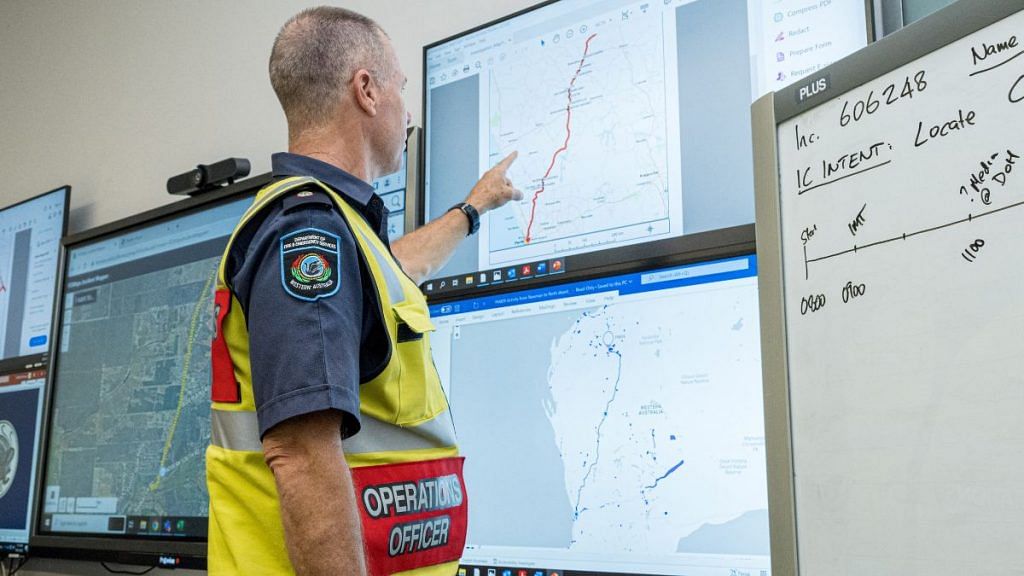Melbourne: Rio Tinto Ltd apologised on Monday for the loss of a tiny radioactive capsule believed to have fallen from a truck that has sparked a radiation alert across parts of the vast state of Western Australia.
It is unclear how long the radioactive capsule, part of a gauge used to measure the density of iron ore feed, has been missing.
The gauge was picked up by a specialist contractor from Rio’s Gudai-Darri mine site on Jan. 12. When it was unpacked for inspection on Jan. 25, the gauge was found broken apart, with one of four mounting bolts missing and screws from the gauge also gone.
Authorities suspect vibrations from the truck caused the screws and the bolt to come loose, and the radioactive capsule from the gauge fell out of the package and then out of a gap in the truck.
Authorities are now grappling with the daunting task of searching along the truck’s 1,400 kilometre (870 mile) journey from north of Newman – a small town in the remote Kimberley region – to a storage facility in the northeast suburbs of Perth – a distance longer than the length of Great Britain.
“We are taking this incident very seriously. We recognise this is clearly very concerning and are sorry for the alarm it has caused in the Western Australian community,” Rio’s iron ore division chief Simon Trott said in a statement.
The silver capsule, 6 millimetres (mm) in diameter and 8 mm long, contains Caesium-137 which emits radiation equal to 10 X-rays per hour.
Authorities have recommended people stay at least five metres (16.5 feet) away as exposure could cause radiation burns or radiation sickness, though they add that the risk to the general community is relatively low.
The state’s emergency services department has established a hazard management team and has brought in specialised equipment that includes portable radiation survey meters to detect radiation levels across a 20-metre radius and which can be used from moving vehicles.
Trott said Rio had engaged a third-party contractor, with appropriate expertise and certification, to safely package and transport the gauge.
“We have completed radiological surveys of all areas on site where the device had been, and surveyed roads within the mine site as well as the access road leading away from the Gudai-Darri mine site,” he said, adding that Rio was also conducting its own investigation into how the loss occurred.
Analysts said that the transport of dangerous goods to and from mine sites was routine, adding that such incidents have been extremely rare and did not reflect poor safety standards on Rio’s part.
The incident is another headache for the mining giant following its 2020 destruction of two ancient and sacred rock shelters in the Pilbara region of Western Australia for an iron ore mine.
(Reporting by Melanie Burton; Editing by Edwina Gibbs)
Disclaimer: This report is auto generated from the Reuters news service. ThePrint holds no responsibilty for its content.
Also read: UK’s House of Commons defence panel calls for expansion of AUKUS to include India, Japan
